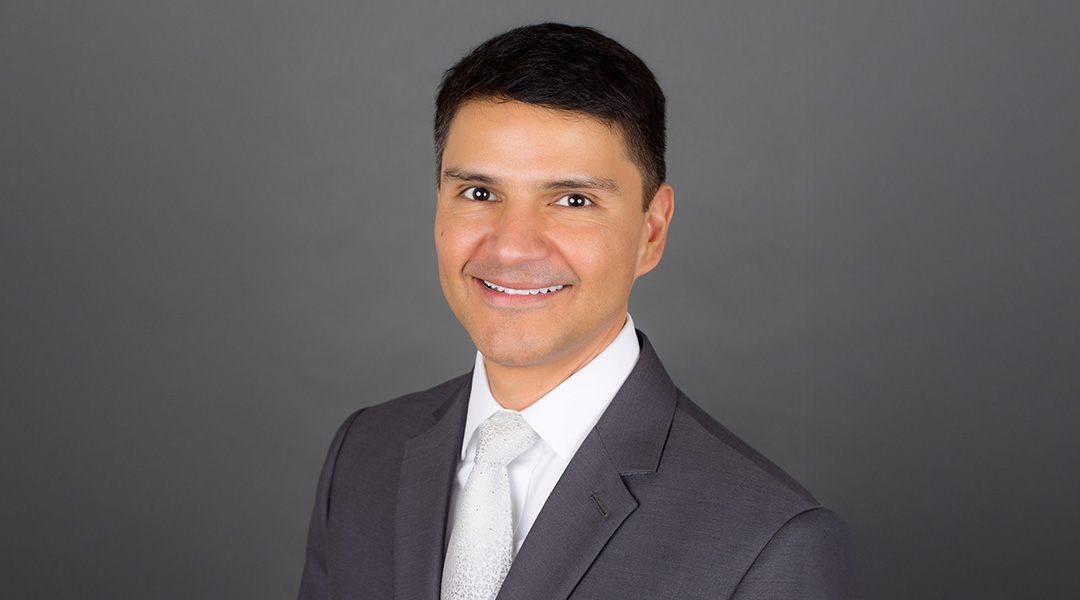Wi-Fi Pioneer to Speak at Cockrell Commencement
If you’ve used Wi-Fi over the last 20 years, whether it be at home, at the office or on the go, then Edgar Figueroa has had an impact on your life.

Edgar Figueroa, mechanical engineering alumnus from the Cockrell School of Engineering
For nearly 20 years, the Texas Engineering graduate was a key player at Wi-Fi Alliance, a consortium of about 1,000 companies responsible for the growth and development of the technology. He led Wi-Fi Alliance as CEO for 15 years, until his retirement in 2022, during a period of unprecedented expansion of the technology that is now ubiquitous around the world.
Texas Engineering graduates will hear about this and more when Figueroa speaks at the 2025 Cockrell School undergraduate commencement ceremony on May 9.
Figueroa embodies the spirit of a courageous engineer. He earned his first diploma at age 12, becoming a professional typist to help provide for his family. Born and raised by a single mother in Guatemala, he immigrated to the United States at 14.
In his formative years, he worked as a mechanic and learned to speak English. He attended Von Steuben Metropolitan Science Center in Chicago, the first of his family to graduate high school. After serving in the U.S. Navy, Figueroa came to The University of Texas at Austin, where he earned a degree in mechanical engineering, graduating with honors in 1994.
Figueroa credits his time at UT for developing critical thinking skills, which have been the hallmark of his career. We sat down with Figueroa to learn more about how the Cockrell School impacted his life and career.
Looking back, what would you say to that kid in Guatemala trying to provide for his family?
I would tell that boy in Guatemala to stay positive and encouraged because even though his circumstances are difficult, the hardships he is experiencing are forging in him drive, character, and determination that will lead him and his family to a better place.
Isn’t this life’s irony? When we face obstacles, we often have a chance to grow, and to glean perspective about the things that really matter.
What was something unexpected that you learned from your time at Cockrell?
I was surprised that the engineering curriculum resulted in non-academic lessons that stayed with me to this day. For example, to succeed in class I learned invaluable communications skills, leadership skills, and planning skills.
Perhaps most importantly, I learned to believe that marvelous things can happen when like-minded, driven individuals join forces. Such non-curriculum lessons were vital in my career.
Tell us about a particular course, project, faculty member or experience that, upon reflection, shaped your path at the Cockrell School?
It was not until I took solids, fluid mechanics, and thermodynamics that I realized I needed to work on my study habits. Before then I generally could figure things out on my own. These courses were unlike anything I studied before though, and my old study habits were not enough.
Soon, I met a few classmates who ultimately became dear friends. We helped each other through the challenging curriculum.
Experiencing the difference that a strong study group made uncovered for me a hidden gem in our profession: collaboration. Effective collaboration is the engineer’s super power.
What do you wish you’d known when you were graduating?
When I graduated, I wish I knew more about the range of professional opportunities available to engineers.
I was the first in my family to graduate from college. There were no professionals, and certainly no engineers, that I knew. I had tunnel vision, and perhaps a romantic idea, about pursuing product development. I spent the first few years of my career in product development and truly appreciated learning a lot of good habits, and about the product lifecycle, during that span. I would have benefited early on from recognizing, and perhaps exploring, the countless other avenues also available to engineers. Engineering is one of the most versatile careers, with a vast array of professional opportunities.
What motivated you to start giving to UT/the Cockrell School, and how do you hope to help future generations of students?
Along with my undergraduate acceptance, The University of Texas at Austin awarded me an engineering scholarship, which would renew every semester. Through these scholarships, the University and anonymous donors gave me a vote of confidence that was overwhelmingly significant. I am still so grateful to have attended Cockrell, and to have benefited from such generosity.
My wife and I believe it is only right that, having benefited from others’ kindness, we continue the tradition of supporting deserving Cockrell students.
